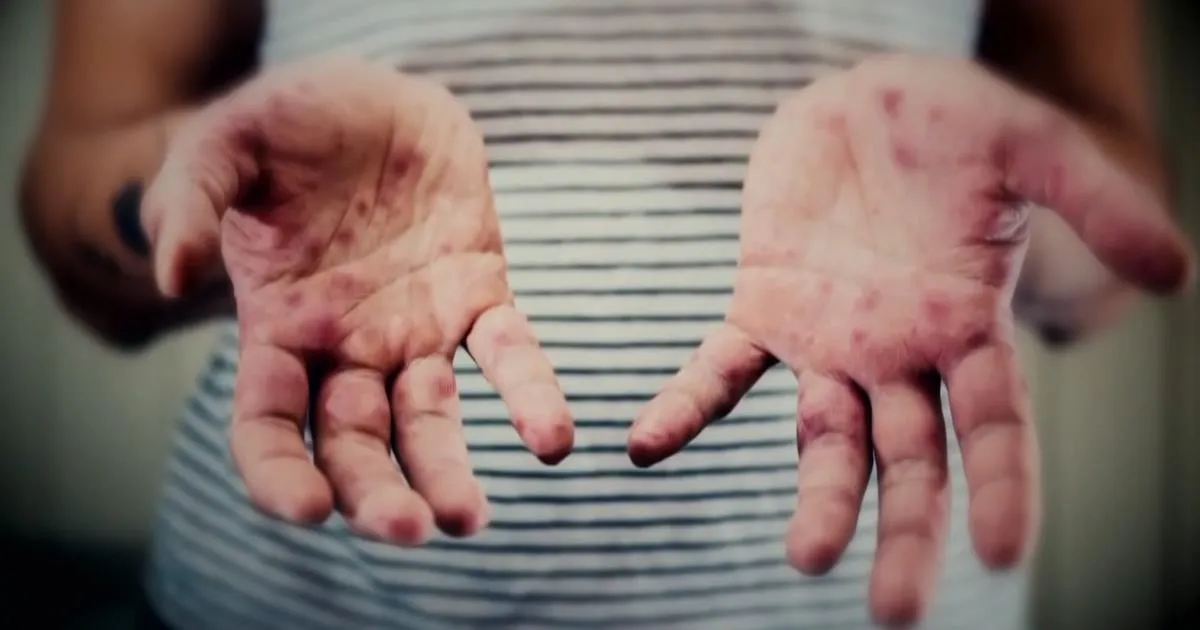
North Carolina hospitals are currently on high alert for patients exhibiting symptoms of measles, following the state's first reported case this week. The North Carolina Department of Health and Human Services (NCDHHS) confirmed on Tuesday that a child in the Greensboro area has tested positive for the virus. This alarming development has prompted health officials to encourage individuals who frequented public spaces visited by the infected child to closely monitor for any signs of the disease.
Hospitals in the Triangle area are taking proactive measures to prepare for potential outbreaks of measles. Dr. David Wohl, an infectious disease specialist with UNC Health, emphasized that they have been diligently working for months to ready themselves for an outbreak. "We’ve been working hard for months to prepare for an outbreak of measles or multiple outbreaks at once," he stated in an interview with WRAL. Dr. Wohl noted that the confirmed case did not come as a surprise, given the highly contagious nature of the virus. He warned that North Carolina is likely to see more cases emerge due to the virus's ability to spread rapidly.
"This was inevitable. We knew that eventually we would get a case here as well," Dr. Wohl explained. He highlighted the severity of the situation, noting that measles is an incredibly infectious virus that can remain airborne and persist on surfaces for extended periods. Individuals born before 1957 are generally assumed to be immune, as the disease was widespread prior to the introduction of vaccines.
In 2000, the Centers for Disease Control and Prevention (CDC) declared that measles had been eliminated from the United States, attributing new cases primarily to individuals traveling from other countries. However, Dr. Michael Smith, the Chief of Pediatric Infectious Diseases at Duke Health, expressed concern that the current situation is worsened by declining vaccination rates among children. He attributed this trend to the spread of vaccine misinformation, particularly during the COVID-19 pandemic, which has led some parents to doubt the safety and efficacy of the MMR (measles, mumps, rubella) vaccine.
“Until this year, when we’ve seen a rise in measles cases, parents may have thought, ‘Measles is not really common in the United States, so I’m not going to worry about it,’” Dr. Smith remarked. “That story is not true. The MMR vaccine does not cause autism. Don’t take it from me as a doctor – I’m a dad and both my kids are vaccinated. This is a safe and effective vaccine.” He cautioned parents that failing to vaccinate their children could significantly increase their risk of severe illness.
Dr. Smith warned, “Measles can make you very sick. In the best-case scenario, you might feel awful, experiencing symptoms akin to the worst cold of your life.” He stressed that there is no specific treatment for measles, making vaccination the most crucial preventive measure. According to the CDC, over 1,220 measles cases and three fatalities have been reported across the United States this year, with 95% of these cases occurring in unvaccinated individuals or those with unknown vaccination status.
Both Dr. Wohl and Dr. Smith agree that effective communication among hospital staff, clinicians, urgent care centers, pediatric offices, and health departments is vital for identifying and controlling potential outbreaks. Dr. Wohl explained, “Not everybody who has measles presents with a rash; often, they may initially show symptoms like a high fever, sore throat, or red eyes.”
Families planning to travel should be particularly vigilant, especially if they have not received vaccinations. Dr. Smith advised, “We know now there is a case in our state. There’s no doubt if you’re traveling through any airport, you’re likely to come into contact with someone who may have been exposed to measles. The best thing you can do is get vaccinated.”